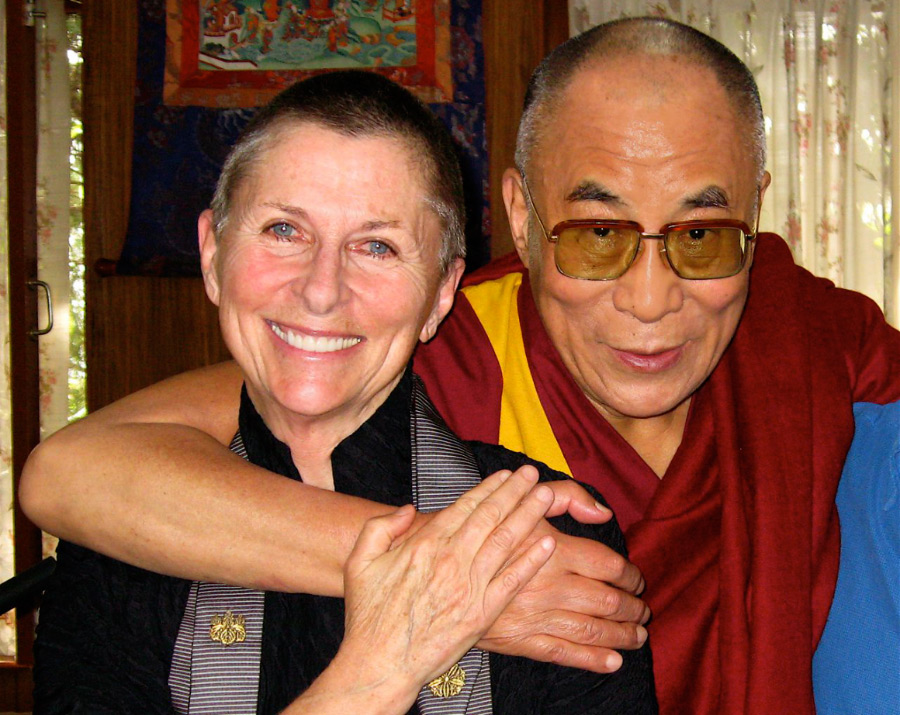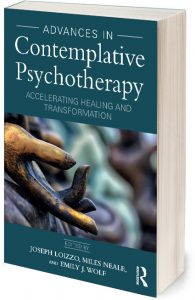by Roshi Joan Halifax

For much of my life I have worked with caregivers in the most challenging of clinical settings—end-of-life care—as well as with activists on the front lines of pressing struggles in social justice and social action. In the course of this work, I have witnessed firsthand the insidious impact of empathic distress in caregivers and activists.
As a practitioner and teacher of Zen, I have been fortunate over the years to be able to deepen my reliance on Buddhist teachings on compassion. Not only has my practice of wise and skilled care sustained me, but I soon learned that my students and colleagues facing similar challenges found it equally helpful in sustaining their life and work. My work with clinicians and others prompted me to develop a heuristic map of compassion, based on social psychology and neuroscience, and the development of a process called GRACE that is a way to cultivate compassion in the process of interacting with others. This work has expanded into the many compassionate outreach programs we have developed at Upaya Zen Center, including Being with Dying, our training program for palliative care clinicians, and our popular annual Neuroscience and Zen Brain conference.
Since my work in the 1970s with pioneering psychiatrist Stan Grof, and my ongoing work with the contemplative neuroscience community of the Mind Life Institute, I have been deeply involved in the field building around contemplative neuroscience. Seeing the growing body of meditation research showing its beneficial effects on the brain, along with the mounting evidence of its practical efficacy in healthcare and psychotherapy, has been inspiring for us all. Yet the latest work done by colleagues like Richard Davidson and Tania Singer showing the beneficial effects of compassion training on the brain’s processing of human suffering I find even more promising and potentially impactful for world health and well-being. Compassion training clearly has the power to protect caregivers from burnout, and to make them even more effective in helping others face the many difficult challenges of life in our age. This is why I was happy to learn of the publication of Advances in Contemplative Psychotherapy: Accelerating Transformation.

In parallel with the laboratory research on compassion done by my friends at Mind Life, and very much in synchrony with the practical applications of mindful compassion we teach at Upaya is the Certificate Program in Contemplative Psychotherapy (CPCP) developed by Joe Loizzo and his colleagues at Nalanda Institute for Contemplative Science. Nalanda Institute’s two-year CPCP trains practitioners in mindfulness-based psychotherapy first, and then moves on to training them in the wisdom and arts of compassion shared by both the Zen and Tibetan Buddhist traditions. I am very pleased to hear that Joe and his co-editors Miles Neale and Emily Wolf are compiling a book including many of my close colleagues.
It is my pleasure to recommend to you this book, which offers interested therapists and caregivers an introduction to Buddhist teachings, neuroscience, psychology and clinical practice of integrating mindfulness, compassion, and embodiment techniques into psychotherapy. I believe that expanding the training in mindful compassion skills to psychotherapists can enhance their ability to deepen their care of their clients, spreading the healing hand of human kindness to ever-wider circles of those most in need.
Rev. Joan Jiko Halifax
Abbot, Upaya Zen Center
Santa Fe, New Mexico
Originally published Summer 2017
